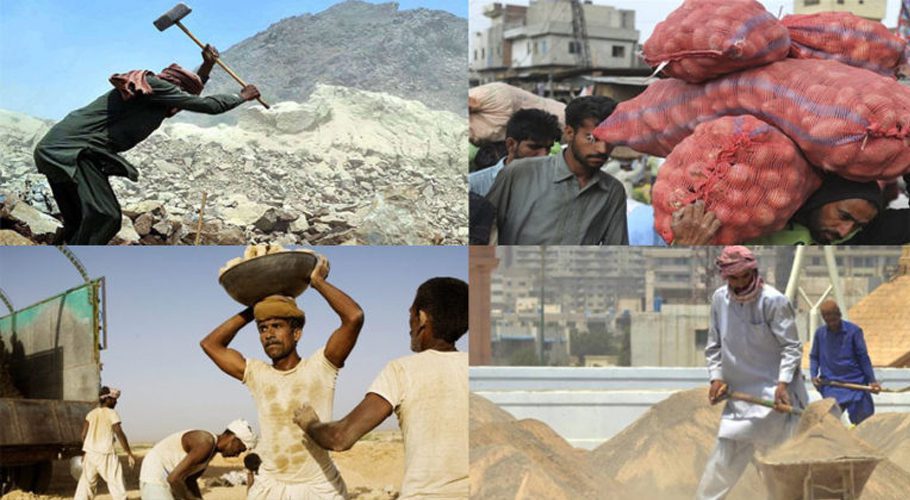For decades, International Labour Day has been observed each year on the first day of May to commemorate the achievements of the working class and the labour movement. On the day seminars and get-togethers are organised by the governments as well as labour federations that highlight the depressed and miserable conditions of our workers.
They also highlight the flagrant violation of labour’ welfare laws regarding medical and old-age pension benefits by employers, facilitated by government functionaries. Let’s take a look at the tragic history of basic human rights and the various facts surrounding World Labour Day.
World Labour Day: History
Worker Day has its origin in the Labour Union movement in the United States. In the late nineteenth century when industrialisation was at its peak, industrialists used to exploit the labour and make them work for 15-16 hours a day; they frequently faced very unsafe working conditions, with inadequate access to fresh air, sanitary conditions and breaks for rest. Despite long work hours, they were poorly paid.
A time came when labours could not take this exploitation any longer and started to demand paid leave, proper wages and breaks from work. They demanded that the working hours be reduced to only eight hours a day so they have time for rest and recreation — eight hours to work, eight hours for recreation and eight hours for rest.
Labour unions to press for their demands started organising rallies and strikes to protest against the dismal and unsafe working conditions and to force employers to revise work hours and pay. Several of these events turned violent during this period, including the infamous Haymarket incident.
Workers in the USA and Chicago went on strike which continued for days on May 1, 1886. On May 4, the police acted to disperse the protesting labours near Chicago’s Haymarket Square, when an unknown person threw a bomb at the police. The police responded by firing at the workers, as a result of which several workers lost their lives.
Labour Day celebrates the struggles against the violations of workers’ rights, including lengthy workdays, poor conditions and low wages. May 1 was chosen as world Workers Day to memorialize the Haymarket massacre in Chicago in 1886.
The main issue for global labour markets
Poor quality employment is the key issue for world labour markets, with millions of workers forced to accept inadequate working conditions. According to a new report from the International Labour Organization (ILO), a majority of the 4.1 billion people employed internationally in 2020 had insufficient material well-being, economic security and equality of opportunity.
What’s more, progress in plummeting redundancy internationally is not being reflected in developments in the quality of work. The report cites the persistence of a number of major deficits in decent work, warning that, at the current rate of progress, attaining the goal of decent work for all, as set out in the Sustainable Development Goals (SDGs), particularly SDG 8, seems unrealistic for many countries.
The report cautions that some new business models, including those enabled by new technologies, threaten to undermine existing labour market achievements – in areas such as improving employment formality and security, social protection and labour standards – unless policy-makers meet the challenge.
labour’s condition in Pakistan
Pakistan became an active member of the intercontinental Labour Organisation soon after the independence and confirmed more than 33 of its conventions generally related to working hours, right of association, safety and health. Regrettably, labours in Pakistan still do not enjoy as many rights as workers in industrialized and more developed countries.
The working conditions are pitiable and the wages are low, and they frequently have to work more than their capacity. In addition to this, there are no safety and health facilities.
Amendments to the labour legislation have constantly been made on an ad hoc basis under political expediencies. Governments in different eras did form commissions to simplify the labour laws and to make them user-friendly.
Sadly those sensible and realistic suggestions by the commissions were never made the law by the incumbent governments for mysterious reasons. Consequently, the employers are left to implement the same laws inherited from the pre-independence era.
As a result, the progressive employers are compelled to make their own policies and rules to overcome the deficiencies of the state laws in order to run their businesses proficiently.
labour is already facing critical challenges due to inadequate working conditions, laws, as well as they, are the biggest victims of the COVID-19 pandemic. Now it is the responsibility of the government to take proper steps and effective laws to support the community.
Labour Day is not just a holiday, it is meant to make us recognize the dignity of workers, whether it is older persons who are working or children women working at homes and workshops. They all deserve respect.


































